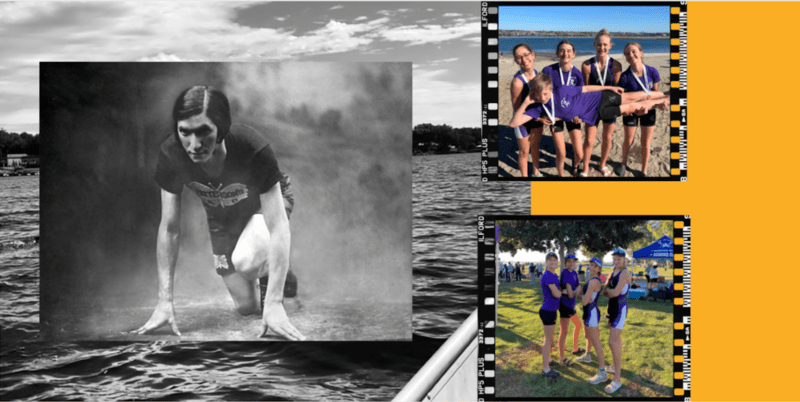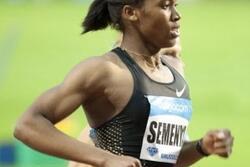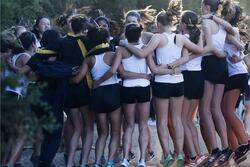Bobbie Rosenfeld and Me: Athletic By Chance, Inspirational By Choice
If you’ve ever seen a photo of an Olympic rower, there’s one thing that might initially catch your eye: their absolutely massive quadriceps. As a boat-mover and aspiring quad-architect myself, I’ve recently become absorbed by weightlifting. This new venture has been difficult; it takes technique and energy to squat cast iron plates. However, the true challenge lies in the workout’s environment. Whether I’m in my high school weight room or the JCC dumbbell section, I often feel the eyes of men wandering across my back as I do barbell squats. Their stares shout: What in the world is she doing here? So weak. Bad form. Although these lurking eyes used to bother me, I’ve grown more confident in my abilities and recently found strength and motivation in my opposition to gendered gym norms. I try to encourage my friends to work out with me to offer them this empowerment as well. It’s a quiet but direct protest: I call it inspirational activism. My understated objection leads me to wonder: As an athletic Jewish feminist, is attacking an uncomfortable situation assertively, but quietly, an effective protest technique? To investigate, let’s go back a few decades to the Jewish Canadian sports factotum Bobbie Rosenfeld.
Fanny “Bobbie” Rosenfeld could do it all: from track and field, basketball, hockey, and softball to journalism and coaching. She was named “Canadian woman athlete of the half-century,” and for me, she also holds the unofficial title of a fellow inspirational activist. Bobbie was not an archetypical feminist—she never stormed government buildings, hosted public demonstrations, or wrote radical columns as did many second and third-wave feminists. Instead, she rebelled against the patriarchy through hard work and sportsmanship. She competed in the 1928 Amsterdam Olympics, the first games that allowed women to participate in the “unfeminine” and “dangerous” track and field event. Bobbie won and medaled in several races. Her Olympic highlight, though, was the 800-meter event. She entered late as a novice in order to pace fellow athlete Jean Thompson, who was recovering from an injury. Bobbie ran beside Thompson, matching her pace throughout the race, bolstering her teammate’s confidence as she faded in the second half. In the final stretch, Bobbie slowed, allowing Thompson to take fourth, and she, fifth. It was obvious to the audience that Rosenfeld could have pushed ahead to win yet another medal. This sacrifice was small, but to Bobbie, her teammate’s success was also her own. This instance was one of many throughout Bobbie’s career that young girls read about in newspapers, and in turn, aspired to match her grit, perseverance, and kindness.
Bobbie’s activism exemplified her Jewish heritage and spirit. As a Jew with roots in Russia’s Pale of Settlement, Rosenfeld’s origins were plagued by a religiously oppressive government and mass pogroms. Despite these early-life hardships, Bobbie “was a large woman, a loud woman, and an emphatic personality,” according to a fellow columnist Robert Fulford. She unapologetically took up space both on the track and in the newsroom when her fellow Russian Jews didn’t have the opportunity. Although she strove for greatness, Bobbie simultaneously demonstrated anavah, humility. During the 1928 Olympics, Bobbie was cognizant of the space she occupied—serving both as a supportive teammate and a fierce competitor.
Bobbie’s adoption of a “women supporting women” attitude could be controversial now: in many contemporary feminist spaces, activists believe that feminism has become too universal, commercialized, and reflective of patriarchy. However, I think current activists should take note of Bobbie’s inspirational model. Cooperation between women would be effective in our splintered feminist community. Although feminism should empower all women, in the 21st century, it’s become exclusive. We see this in TERF groups (trans-exclusionary radical feminists) that believe gender is assigned at birth, in “lean in” feminism, and white-feminist circles which encourage individual success without acknowledging the existence of—and supporting those with—hindering intersectional identities. We’ve lost sight of our collective objective to improve and celebrate the lives of as many women as possible. Feminism, which is already historically fractured by disability, class, race, and sexual orientation, has become overly-selective of the members it fully supports. This attitude is viral, hazardous, and needs to change. A total dismantling of patriarchy must occur collectively by focusing on multiple-narrative community conversations. Like Bobbie, we must utilize anavah to emphasize inclusive feminism and be mindful of the space we take up. Especially in the digital age, where internet activism (i.e clictivism) threatens to dismantle the credibility of a movement, all aspiring Jewish feminist activists should remember Bobbie’s inspirational, collaborative, and genuinely supportive example.
As a female Jew descended from the Pale of Settlement existing in sporting spaces myself, I hold onto Bobbie’s inspirational sentiments intimately. I’m aware of anavah: my innate drive to succeed in the face of adversity as a Jew and as an athletic woman is not singular. My experience is but one of a collective—one narrative that pushes gender boundaries in sports and is fueled by inspirational activism. Especially in 2021, as I’m witnessing rowing practice shifting from a 2020 COVID model of single shells to larger-scale team boats, I’m enlightened by my younger teammates’ similar refusal to submit to norms. I realize that I need to be a more inclusive activist. I’m no longer in a single boat, and I need to assume the responsibility that comes with being the sole experienced female rower on the team. I’m learning that my job as a future change-maker relies on my ability to share my defined platform in the sport with other women. My feminist goals are no longer individual but a collective story of all us women in the boat. There is no room in this vicious world to be picky on who perfectly fits the outline of activist or of athlete. Together, on our small team in Tempe, Arizona we are building a force of female excellence—like Thompson and Rosenfeld did on the world stage 94 years ago. We quietly, powerfully, and successfully rise together. This protest was—in 1928—and is—in 2021—enough.
In a hope for a more efficient feminist movement, our activism must be genuine, assertive, and inclusive. Our opposition is strength, our power is in numbers, and our spirit is Jewish. So go head over to your local JCC with all your female friends, skip past the cardio section, go straight to that squat rack, and lift heavy—make that guy staring in the mirror squirm a little.
This piece was written as part of JWA’s Rising Voices Fellowship.








Amazing! This young woman is going places